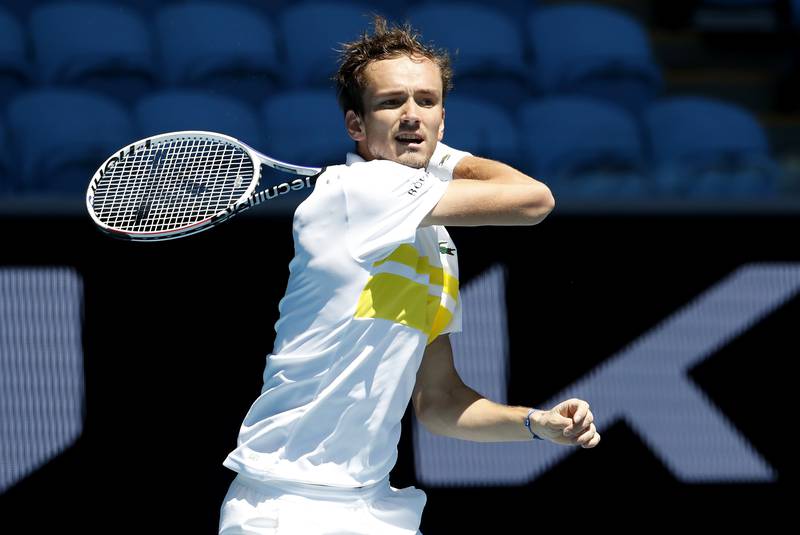Naomi Osaka eliminated Serena Williams on Thursday in the semi-finals of the Australian Open.
At only 23 years old, the young Japanese girl is aiming for a fourth Grand Slam title. In addition to being an accomplished player, she is also using her notoriety to defend causes that are dear to her, making her the new icon of the WTA Tour.
Seeing Serena Williams leave the press room of Melbourne’s Rod Laver Arena in tears on Thursday, after having already taken the time to send hearts this big to the Australian public after her semi-final defeat to Naomi Osaka, it felt like a kind of power shift between the two women. As if in her crocodile tears flowed both the emotion of a career that she feels is coming to an end and the idea that it’s time to pass the torch. The former pro Camille Pin validates our theory: “That’s it completely. It’s almost as if Serena had waited until Osaka had reached maturity to go there! »
Because on Thursday, in the semi-final between the idol on the decline and his number 1 fan on the rise, there was no doubt. And bookmakers such as Betiton are unanimous about this. “As much as Serena has been against Sabalenka and Halep in the previous laps, she hasn’t been able to make it against Osaka”, continues the former player. At 23 years old, Osaka is now on her way to her fourth Grand Slam final (she has won her three previous ones) and with her, the whole tennis world is expecting the new boss of the circuit.
Osaka arrives to fill the gap
“I commented on his match against Caro Garcia and I thought “ah yeah…”. You feel it’s already a class above, there’s no doubt about it,” enthuses Sarah Pitkowski, consultant at the French TV program RMC. “She hits very hard, she takes the ball early, she moves well, she keeps her line well and she serves a bit like Serena. It’s starting to feel like a lot! She just needs to progress on grass and clay, but it will come, I’m not worried about that. I think she already combines all the assets that make a player become a legend or not.”
And legends, it’s nothing to say that women’s tennis is cruelly lacking in them today. A bit as if after Serena Williams the WTA had thrown away the mould. “I’m happy, almost moved to see that we finally have a star coming to take over,” says Camille Pin. We almost didn’t believe in it any more, we said to ourselves “but it’s not possible that there isn’t one that stands out from the crowd” “.
“That’s what women’s tennis has been missing for far too long,” Pitkowski agrees. Until now, we used to see grand slam winners who could get beaten in the first round of a $500,000 tournament right behind. Until now everyone could beat everyone else, but with Osaka you can feel that history is taking a different turn. The Kerber generation, Halep, Pliskova, all these girls, plus those who managed to win a grand slam once, Andrescu, Ostapenko, they were just comets in the end”. But to shine and make its place alongside the boys, the women’s circuit needs characters that last, strong faces with whom you can identify.
Listening to her after her victory in the semis, you don’t have much fear on this side. “When I was younger, about two years ago, the feeling, the objective, was to make history by becoming the first Japanese person to win a grand slam,” she confided. “That was my goal. Of course, it’s rewarding to see your name on a trophy, on a wall, but I think bigger than that now.” “The suit, she took it and she is in the process of tailoring it to her image, to what she wants to be in the history of this sport. I think that today we fear her and that’s a sign of the imminent takeover,” Pitkowski thinks.
A committed player off the court
We fear her and we listen to her. Because it is not only on the courts that the player imposes her style. Witness this strong act in Cincinnati last September, when she refused to play in her semi-final to protest against police violence in the United States after the death of George Floyd and the shooting of Jacob Blake, forcing the tournament organisers to follow the movement and postpone the match until the following day. At the US Open she was even seen entering the field with masks on behalf of African-American victims of the same police violence. This militant commitment has sometimes earned her criticism in Japan, the country of her birth, which she left with her family at the age of three, where, as the Mainichi daily news notes, “it continues to be considered a virtue for athletes to devote themselves solely to competition and not to interfere in political issues”.
Naomi Osaka recently spoke out against the lukewarmness demanded by some, to tease the president of the organising committee of the Tokyo Olympics (and former prime minister of Japan) Yoshiro Mori, who said on 3 February that women on the boards of directors tended to open them up too much by “spirit of competition”. “We have seven women on the organising committee, but they know how to stay in their place,” he concluded without anyone at the time finding anything to complain about. “It’s the statement of an ignorant man,” Osaka rebelled a few days later.
“I think she really embodies something in the sense that she goes beyond the world of tennis with her statements. When you say you have a boss, that’s also where it comes from,” Pitkowski notes. Today, to give visibility to the sport, personality must also go beyond the rectangle. She has an iconic side, she represents something, her word weighs a lot”.
“She’s fresh in her communication, she’s endearing, you feel that her words are not calculated, it’s spontaneous, honest,” Camille Pin says. Sometimes those who want to position themselves, either it’s not done wisely or it’s for the image. We can see that she doesn’t put herself forward by will but that she uses her notoriety to convey messages that are close to her heart. “Like any self-respecting icon.





















